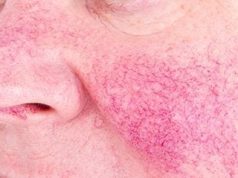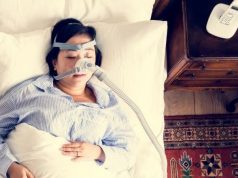Drugs modulating the vasopressin pathway explored as agents to modify social behaviors in autism
THURSDAY, May 2, 2019 (HealthDay News) — Balovaptan, an orally administered selective vasopressin V1a receptor antagonist, is associated with improved adaptive behaviors for men with autism spectrum disorder (ASD), while arginine vasopressin (AVP), a neuropeptide involved in promoting mammalian social behaviors, may improve social impairments in children with ASD, according to two phase 2 studies published online May 1 in Science Translational Medicine.
Federico Bolognani, M.D., Ph.D., from Roche Innovation Center Basel in Switzerland, and colleagues evaluated balovaptan in 223 men with ASD and IQ ≥70. Participants were randomly assigned to 12 weeks of placebo (75 participants) or one of three balovaptan dose arms (1.5 mg, 32 participants; 4 mg, 77 participants; 10 mg, 39 participants). The researchers found no correlation for balovaptan treatment with a change from baseline versus placebo in the primary efficacy end point (Social Responsiveness Scale, Second Edition). Participants treated with 4 or 10 mg balovaptan versus placebo had dose-dependent and clinically meaningful improvements on the Vineland-II Adaptive Behavior Scales composite score.
Karen J. Parker, Ph.D., from Stanford University in California, and colleagues tested the efficacy and tolerability of a four-week intranasal AVP daily treatment in 30 children with ASD aged 6 to 12.9 years. The researchers found that compared with placebo, AVP treatment enhanced social abilities as assessed by change from baseline in the primary outcome measure, the Social Responsiveness Scale, Second Edition, total score. Anxiety symptoms and some repetitive behaviors were also diminished with AVP treatment.
“Intranasal AVP treatment has potential to enhance social abilities in an ASD patient population characterized by currently intractable social impairments,” Parker and colleagues write.
All authors from the Bolognani study are employees of F. Hoffmann-La Roche, which manufactures balovaptan and funded the study.
Abstract/Full Text – Bolognani (subscription or payment may be required)
Abstract/Full Text – Parker (subscription or payment may be required)
Copyright © 2019 HealthDay. All rights reserved.








